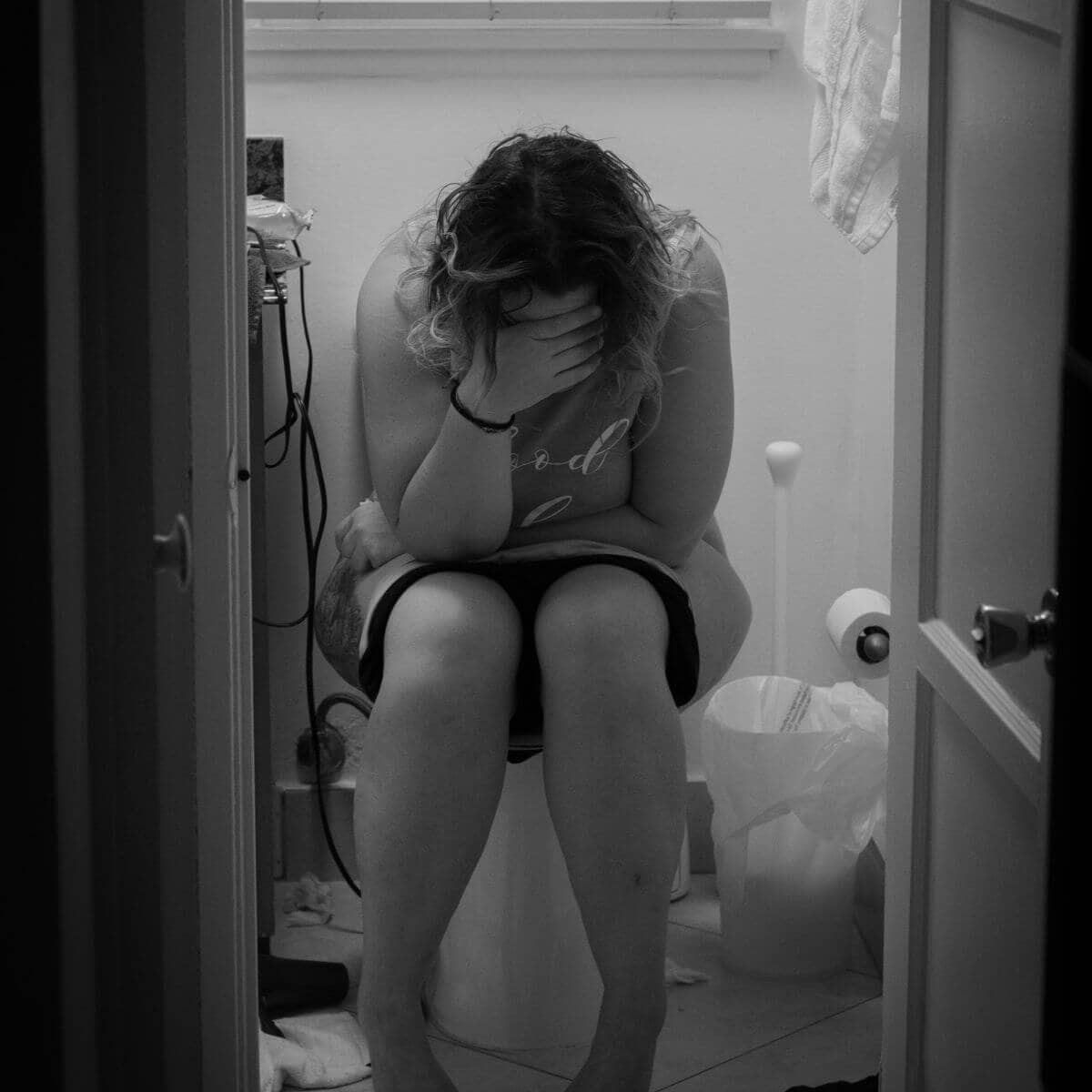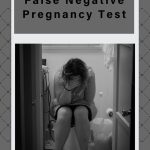You have a gut feeling, missed your period, and swear you’re experiencing one-week pregnancy symptoms, so your first instinct is probably to take a home pregnancy test. You get up early one morning, pee on a stick, and are shocked to find the test is negative.
While we’d like to think any medical technology is flawless, this isn’t always the case. It can be devastating to get a negative result, but false negative pregnancy tests do exist.
No matter how convinced you are that you’re expecting, there is a possibility you could get a false negative test.
But why?
What could be going on inside your body to interact with the positive result you believe you’ll receive?
There are many reasons a pregnancy test can give you a false negative. From misusing the test to low levels of human chorionic gonadotropin (hCG), getting accurate results isn’t as easy as you might think.
If you’re trying to figure out why your pregnancy test results aren’t giving you the answer you expect, keep reading!

This site contains affiliate links, meaning that we earn a small commission for purchases made through our site. We only recommend products we personally use, love, or have thoroughly vetted.
- Is Getting a False Negative Possible During a Pregnancy Test?
- Why Do False Negative Pregnancy Tests Happen?
- The Most Trusted Way to Take a Home Pregnancy Test
- Negative Test Results, but Still No Period?
- When Should You See a Doctor About Negative Home Pregnancy Tests?
- Don’t Be Afraid to Question a False Negative Pregnancy Test
Is Getting a False Negative Possible During a Pregnancy Test?
It’s incredible how far home pregnancy tests have come over the years.
They are more sensitive and accurate than ever before, and many offer results before you even experience a missed period. But many potential parents with a false negative find themselves wondering just how accurate are pregnancy tests?
Despite some claims that today’s pregnancy test results are 99% accurate, recent studies have shown up to a 5% chance you could receive false negative results.
There’s even a chance you could get false positives while testing. That happens less than 1% of the time, though.

Why Do False Negative Pregnancy Tests Happen?
So the big question is how: how can such sensitive, innovative tests produce incorrect information? There are several surprising reasons you might end up with a negative pregnancy test result.
Some of the most common reasons include:
1. You Tested Too Early
We know that it’s not always easy figuring out what to do during the TWW. No matter how excited you are to find out if you’re expecting, though, taking a test early isn’t the best idea.
While your body will start producing hCG (the pregnancy hormone) soon after implantation, you won’t get reliable results until a significant amount of this pregnancy hormone is present.
If you get a negative test result and still think you’re pregnant, wait a week and try again.
2. You Used a Pregnancy Test Incorrectly
You might think there’s no wrong way to pee on a stick (or POAS if you’re using infertility acronyms!), but the process is more precise than you might think.
Pay attention to the instructions for your home pregnancy test and follow them carefully for dependable results.
3. You’re Experiencing an Ectopic Pregnancy
A developing embryo attaches itself outside of the uterus during an ectopic pregnancy, often in the fallopian tube. hCG does develop in situations like these, but the levels aren’t always high enough to yield a positive pregnancy test.
4. Your Urine is Too Diluted
Okay, this will likely be the only time someone tells you drinking too much water could be a problem! Surprisingly, when your urine is super “clean” and diluted, it can lead to a false negative pregnancy test.
If your pee is too diluted, it can lead to low levels of hCG, which leads to incorrect test results.
5. Your Hormone Levels Aren’t High Enough
After implantation, hCG levels will continuously rise throughout the first several weeks of pregnancy. However, if you test too soon, the amount of hCG hormones in your urine might not be high enough to trigger a positive result.
6. Your Medications Are Affecting the Results
Some of your medications could adversely affect your pregnancy test results. If you are suspicious you’ve received a false negative and are on one of the following medicines, you may want to ask your doctor for a blood test instead.
- Benzodiazepines, i.e., Valium, Xanax, or Ativan
- Phenothiazine, i.e., Thorazine or Duraclon
- Promethazine, i.e., Phenergan or Phenadoz
Occasionally, even certain fertility drugs, like Clomid or Metformin, can cause a false negative. If you’re using fertility medication to conceive, discuss the test results with your practitioner.
7. You’re Experiencing the “Hook Effect”
While positive pregnancy tests require certain levels of hCG, you can also have too much of this pregnancy hormone for a trustworthy result.
In situations like molar pregnancy or being pregnant with twins or triplets, high levels of hCG are often present. Those unusually high levels can overwhelm the test strip and lead to a negative result.
If you’ve received a positive test in the past and then received a negative result, later on, you could be dealing with a false negative from the hook effect.
The Most Trusted Way to Take a Home Pregnancy Test
We all want the best chance at correct test results! Here are a few tips and tricks to keep in mind before testing:
- Use your first-morning pee to take the test, as hCG levels will be the most concentrated.
- Read all pregnancy test instructions carefully before beginning the process.
- Wait until the first day of your missed period for the most accurate results.
- Dip the test in a cup of urine instead of trying to pee on it.
- Don’t leave the test in the cup too long.
- Avoid using expired pregnancy tests.
Don’t be afraid to take another test if you fear a false negative. Most kits actually come with two tests in the box in case of user error!
Breaking Down the Most Accurate Home Pregnancy Tests
If you want to avoid false-negative pregnancy test results, you’ll likely want to buy the best tests available. Some of our favorite early pregnancy tests include:
- Clearblue Rapid Digital Tests
- First Response Early Result
- Easy at Home Pregnancy Tests
- ClinicalGuard HCG Test Strips
Negative Test Results, but Still No Period?
You’ve double-checked the instructions, tested multiple times, and still have a missed period, but no positive results: what’s up?
There are several reasons you might miss your period without being pregnant.
Breastfeeding, for example, is known to interfere with menstrual cycles.
Some other life events can also cause a missed period, such as travel, stress, gaining weight, or too much exercise.
There are also some health conditions that can wreak havoc on the regularity of a woman’s cycle. Some of these include thyroid disease, polycystic ovary syndrome, and perimenopause.

When Should You See a Doctor About Negative Home Pregnancy Tests?
If you’re more than two weeks past your expected period with no positive pregnancy test, it might be a good time to schedule an appointment with your doctor.
Your provider can conduct a blood pregnancy test, which will provide enhanced results.
If you’re experiencing other symptoms, such as unusual vaginal bleeding, vomiting, or other types of illness, these are additional reasons to see your doctor, especially if you suspect a pregnancy!
Don’t Be Afraid to Question a False Negative Pregnancy Test
When you feel certain a fertilized egg implants, taking a pregnancy test can be a thrilling experience. When you don’t get the test results you’re anticipating, however, it can seem like such a letdown.
Whether you’re trying naturally to get pregnant, taking fertility medications, or undergoing infertility treatments, don’t hesitate to question the results you receive.
While not everyone will agree, I believe in gut feelings regarding conception.
Sure, we can wait for early pregnancy signs like missed periods, nausea, and breast tenderness, but sometimes you can just “tell” that something’s happening inside your body.
From taking another test to scheduling a blood draw with your doctor, don’t just accept negative test results if you don’t feel confident in them. Be your own healthcare advocate and seek out the answers you’re looking for.
Have you or someone you know ever experienced a false negative pregnancy test?










